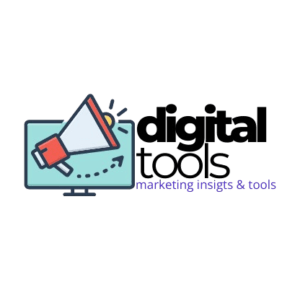Artificial Intelligence (AI) is revolutionizing every aspect of the digital world, and content marketing is no exception. From speeding up content creation to optimizing distribution, AI is reshaping the way brands communicate with their audiences. The impact of AI on content marketing is profound, with significant implications for both marketers and consumers.
Table of Contents
Introduction: The Role of AI in Content Marketing
AI technology has become a cornerstone of modern content marketing strategies. Marketers are leveraging it to streamline workflows, personalize customer experiences, and maximize efficiency. Tools like natural language processing (NLP) and machine learning (ML) are allowing brands to create, curate, and distribute content at a scale never imagined before. AI and content marketing are now intertwined, making it essential for marketers to adapt to this evolving landscape.
1. AI-Powered Content Creation
One of the most significant ways AI is impacting content marketing is through content creation. AI tools, such as GPT-based platforms, can generate high-quality articles, blogs, and even video scripts in a fraction of the time it would take a human. These tools analyze vast amounts of data, helping marketers create relevant content that resonates with their audience.
- Speed and Efficiency: AI can produce content quickly, enabling brands to keep up with the fast-paced digital landscape.
- Personalization: AI algorithms help create highly tailored content for different audience segments by analyzing user behavior and preferences.
- Multimedia Content Creation: Beyond text, AI is being used to generate videos, infographics, and podcasts, further diversifying content formats.
2. Enhancing SEO with AI
AI is also playing a pivotal role in improving search engine optimization (SEO). From identifying the most relevant keywords to optimizing content structure, AI tools ensure that content ranks well on search engines.
- Keyword Optimization: AI tools such as Clearscope and SurferSEO help identify the right keywords and ensure proper keyword density.
- Content Analysis: AI can assess the readability, tone, and overall quality of a piece, helping marketers fine-tune their work before publication.
- Voice Search Optimization: With the rise of voice search, AI is enabling content marketers to optimize their content for conversational queries, boosting visibility in this emerging trend.

3. AI-Driven Audience Insights
AI is transforming how marketers gather and interpret audience insights. By analyzing user data, AI tools can provide deep insights into audience behavior, preferences, and trends. This allows marketers to create more targeted and relevant content that drives engagement.
- Behavioral Analysis: AI tools like Google Analytics or HubSpot AI can track user interactions, helping marketers understand what content resonates best.
- Predictive Analytics: AI algorithms can predict future trends based on historical data, enabling marketers to stay ahead of the curve.
- Segmented Targeting: AI helps brands segment their audience more precisely, creating highly personalized content for each group.
4. Automating Content Distribution
Content distribution can be time-consuming, but AI has introduced automation to make this process smoother. AI tools can schedule posts, distribute content across platforms, and even optimize timing to ensure maximum reach.
- Automated Scheduling: AI-driven platforms like Buffer and Hootsuite allow marketers to automate social media posts, ensuring that content reaches the right audience at the right time.
- Multichannel Distribution: AI enables marketers to distribute content across multiple channels, including email, social media, and blogs, without manual intervention.
- Personalized Recommendations: AI can suggest the best distribution platforms based on audience behavior, improving engagement and reach.

5. AI and Content Personalization
Personalization is a key trend in content marketing, and AI is at the forefront of this shift. AI algorithms can analyze customer data to deliver personalized content that aligns with individual preferences, improving the customer experience and boosting conversion rates.
- Dynamic Content: AI tools can generate personalized emails, landing pages, and even website content tailored to individual users.
- Real-Time Personalization: AI can adapt content in real-time based on user interactions, creating a seamless and personalized experience.
- Recommendation Engines: Platforms like Netflix and Amazon use AI-powered recommendation engines to suggest content, and the same technology can be applied in content marketing to recommend articles, videos, and other materials.
6. Content Curation and Repurposing
AI is also helping marketers with content curation and repurposing. By analyzing trends, AI can curate relevant content from various sources and repurpose it across different platforms to reach a broader audience.
- Automated Curation: AI tools like Curata can automatically find and share content relevant to your brand’s niche, saving time and ensuring consistency.
- Content Repurposing: AI can help marketers transform blogs into podcasts, videos into infographics, and more, extending the reach of a single piece of content.
7. AI-Driven Data Analysis and Reporting
Data analysis is crucial for any content marketing strategy, and AI is making this process more efficient and accurate. AI-powered analytics tools can provide detailed reports on content performance, allowing marketers to make data-driven decisions.
- Real-Time Analytics: AI tools provide real-time insights into how content is performing across different platforms.
- ROI Tracking: AI can help marketers track the return on investment (ROI) for each piece of content, ensuring that marketing efforts are aligned with business goals.
- Optimization Suggestions: AI can suggest optimizations for future content based on performance data, helping marketers improve their strategy continuously.

Conclusion: The Future of AI and Content Marketing
The impact of AI on content marketing is undeniable. It has transformed how content is created, optimized, distributed, and analyzed. As AI continues to evolve, it will become an even more integral part of content marketing strategies, enabling brands to create more personalized, engaging, and effective content.
For marketers, embracing AI is no longer optional—it’s a necessity. By integrating AI into their content marketing strategies, brands can stay ahead of the competition, deliver more value to their audiences, and ultimately achieve better results.


Add a Comment